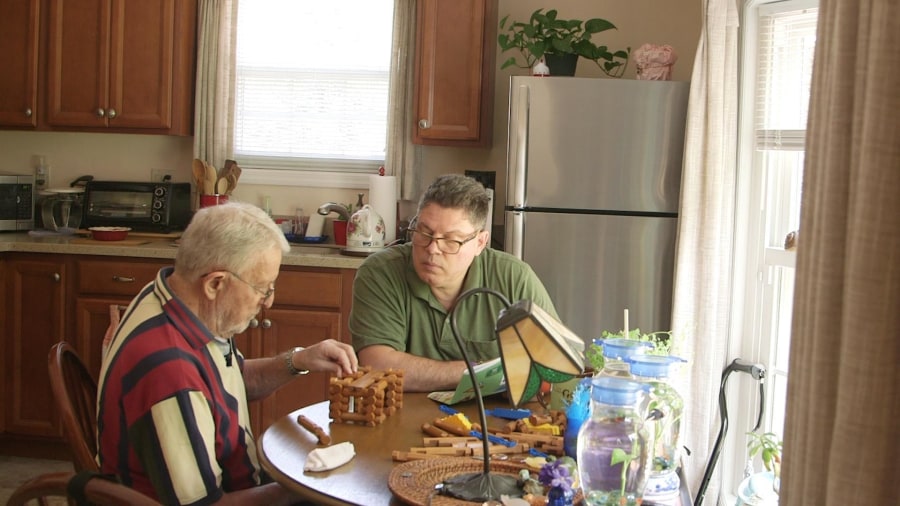Alzheimer’s is a disease a lot of people fear — for good reason. It’s fatal, there’s not much you can doto prevent it and there are currently more than five million Americans living with it. That number is climbing — and it could reach 16 million by 2050, according to the Alzheimer’s Association.
Despite its prevalence, there are many misconceptions about the disease. November is National Alzheimer’s Awareness Month, and in the hopes of raising awareness and education about the disease, we asked some of the country’s top Alzheimer’s specialists to weigh in on the most commonly asked questions.
Yes, Alzheimer’s is fatal, and is currently ranked as the sixth leading cause of death in the U.S., according to the Alzheimer’s Association. Dr. Gary Small, a geriatric psychiatrist and director of the University of California Los Angeles Longevity Center, said that upon diagnosis, most people assume nothing can be done to help them, but that’s not the case.
“There’s tremendous fear about the diagnosis, so people will try to downplay it and deny their symptoms,” Small explained. “But there are treatments that can stabilize symptoms temporarily so you can stay in the community longer and can have a higher level of functioning for longer.”
2. Can I prevent Alzheimer’s?
There are no clear-cut answers yet, the Alzheimer’s Association says. But adopting healthy habits can reduce your risk of cognitive decline, said Heather Snyder, senior director of medical and scientific operations at the Alzheimer’s Association.
“Some behaviors that we can all adopt to keep our brains as healthy as they can be as we age include eating a brain-healthy diet that includes dark, leafy vegetables and one that’s low in saturated fats; being socially active, exercising, getting enough sleep and working with a doctor if you have a mental illness,” Snyder elaborated.
3. I keep forgetting my keys. Do I have Alzheimer’s?
It’s not uncommon for people to think any form of forgetfulness is a symptom of Alzheimer’s disease. “A lot of people forget their keys,” noted Dr. Anitha Rao, a geriatric neurologist and founder of Neurocern, a dementia care planning software company in Chicago, Illinois. “We start getting concerned when there is an impact on a person’s day-to-day activities, or if it’s affecting their job or if they can’t manage their finances when they could before.”
It’s time to see a doctor when you forget the big things, said Dr. Ronald Petersen, a neurologist and Alzheimer’s expert at the Mayo Clinic in Rochester, Minnesota.
“When people start to forget important information, things they formerly wouldn’t have forgotten, like the kids are coming over, or a doctor’s appointment, or having tee time with your buddies every Tuesday,” Peterson elaborated. “When the pattern of forgetfulness changes in the individual regarding important information, it doesn’t mean you have Alzheimer’s, but it means, let’s take a look at this.”
4. Can you take a test to see if you have a risk gene for Alzheimer’s?
There is an at-home test (23andMe) you can take to see whether you have a version of the APOE gene, which is the most common gene associated with late-onset Alzheimer’s disease (occurring in people 65 and older).
According to Small, a sizeable 20 percent of the population has the gene, but there are many people who have APOE-e4 who don’t get Alzheimer’s.
“I don’t see the added value in getting it (the test),” said Small. “ … And many people, when they are informed they carry the gene, actually perform worse on memory tests.”
5. Alzheimer’s runs in my family. Will I get it?
Not necessarily, but family history is a risk factor. According to Small, if you have a first-degree relative, like a parent or sibling who has the disease, your risk of being diagnosed is double compared to the general population. But age, he noted, is the greatest risk factor.
According to the Alzheimer’s Association, the likelihood of developing the disease doubles about every five years after the age of 65. And after the age of 85, the risk reaches close to 50 percent.
6. Why are African-Americans and women more susceptible to Alzheimer’s?
African-Americans are more likely to develop the disease than white Americans. And two-thirds of the five million seniors with Alzheimer’s are women.
So why are these groups disproportionately impacted?
For African-Americans, some of it may be genetic, but lifestyle factors play a role as well, Petersen said. “Mid-life hypertension and mid-life obesity are risk factors for developing Alzheimer’s to a certain degree… If an African-American population tends to be more overweight, have diabetes, have poorly regulated hypertension, those factors may contribute to getting Alzheimer’s.”
And for women? For a long time, many people thought women had a higher prevalence rate because they lived longer than men. “That’s true, but it’s maybe not the entire explanation,” noted Petersen. He said women may process the APOE gene differently and hormonal differences may play a factor as well.
7. What should caregivers know?
Caregivers play an enormous role in the day-to-day lives of those living with Alzheimer’s. Care planning isn’t a one-size-fits-all model, Rao noted, stressing the importance of customized care and working with a social worker or a geriatric care specialist.
It’s also important caregivers realize their job isn’t an easy task. Rao said 40 percent of caregivers are depressed themselves. Seeking support and honoring their role is important. “Giving themselves more credit and doing more self-care is going to be key,” she said.



Comments are closed.